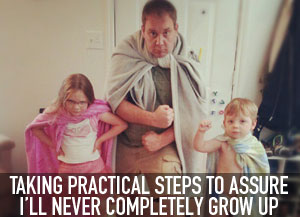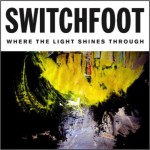The continual increase in technology and the ability to report as events are happening via the Internet and television, images of things that would have NEVER been in front of our own eyes or those of our children are continuing to make their way into our homes.
From pictures of waves of water approaching real communities and real people to some of those same people – having lost their lives being left in the streets, these images may be becoming commonplace through our news outlets, but we must admit that there is danger in how they leave indelible marks on our children.
I just watched a 3-minute conversation about this topic that I think provides some good advice while also leaving room for personal-interpretation:
Watch the full episode. See more The Parent Show.
If you cannot see the video, it is also available here.
What do YOU think? How do YOU manage the images that make their way into your homes? Do you limit the influence media has on your children? How?










I have been thinking a lot about this for Capri. Like part of the video talks about with the not sheltering your children and where the line is I have been trying to figure that out. I plan on taking Capri on missions trips ASAP (like the next one I go on whenever that is). I want her to realize what a lot of the world is like and how they live but I don’t want her to see dead bodies all over the news or in real life. It is a hard line.
I am a fairly new dad, my daughter turns a year old in a couple of weeks. I have seen her react to some scary images that come across shows that my wife and I used to watch. I think it is important to shield her from this unreal images until she is at an age where she can understand the difference between reality and imgainary.
But to hide a child from reality…I struggle with that idea. I don’t see that as a good idea because it doesn’t seem like protection at that point, it seems like sheltering. If my daughter, when she is old enough to ask these questions, asks me if a tornado could ever hit our house (I live in missouri), then I will be honest with her and tell her yes. But there are things you can do, like reassure the child about early warning systems, and having a plan, and get them envolved. But to hide that from them just doesn’t seem wise.
Our daughter turns 1 in a few weeks as well. I feel the same way. I want to start her from an early age realizing that there are people out their hurting and that she can help, and the only way for us to do that is to show her what is happening.
I’m not sure I agree with your last statement, Deborah – “the only way for us to do that (help Capri realize that there are people out there hurting and that she can help) is to show her what is happening”
When I was a child, I don’t think I EVER saw a dead body in the street on the evening news. Now it is uncommon NOT to.
I think I had an understanding (albeit, limited) of some of what the world was experiencing through hearing stories from my family and friends..
Oh I don’t think she should see dead bodies, I said that in my first comment. But I think she should see poverty, and I think it is my responsibility to explain to her that some people don’t have a lot and have to live in those conditions but it is up to us to help those people.
i think interpreting “hiding” children from reality is the danger here.. I think ‘conversation’ between parent and child is sadly something many families leave behind in a hope that “they’ll learn it from TV or at school” or something else – we have a responsibility to help our children understand what it is they’re experiencing…
“I think that if a child asks ‘Will and earthquake happen here?’ then you should say no” and she explains because it is unlikely that it will happen at that time and then says it is truthful. This is where I disagree with her. If you live in an area where it is possible, then you should be honest, and help the child understand the plan to keep the family safe. It seems to me that it is dishonest to allow a child to believe that a natural disaster couldn’t happen.
When I was five, my father was a police officer. I had seen on the news one night where an officer had been shot and stayed up until 2 am to make sure my dad made it home. When he got home, I asked him if the same thing could happen to him. But he also went through all the things that he had and had done to keep that from happening. He didn’t avert the truth, but he didn’t dwell on it either, and that seems to be the difference in my opinion. Otherwise, it is just disingenious.
I think that one of the key factors on this topic is age, though. An 11 month old may not recognize violence or disaster on a tv screen the way a three year old will or a five year old will. But, a three year old deserves an answer to her concerns in a different way than the five year old does. I agree with the suggestion to answer age-appropriately, but it all has to do with the subject at hand. If your child is 5 and asks about a tornado, you can quickly answer that it could happen, but Spend Your Time explaining how to feel safe. I also think the speaker was trying to emphasize HOW to help your child cope with a situation should they be exposed to it. For instance, given our current weather your child may have to accompany you to the basement during a tornado warning. Explaining why you are staying as safe as possible is important, but telling them that the roof may blow off probably isn’t the most age-appropriate idea to discuss.
I also feel that if something comes up on the news that you don’t have time to stop and discuss with your child, then it should be turned off. We are responsible with HOW our children are exposed to information whether we want to shelter them, or not. Also, if it’s bedtime–a storm chasers episode is highly unwise if you want them to go to sleep. To me, this is natural to respond this way, but we make a habit of having family discussions about such things so maybe it’s easier to recognize a teachable moment verses a time to slow down the amount of information my child is receiving at a time.
I had another thought….just like we’re trying to figure out where to draw the line on what to expose our children to in regards to disaster and other negative stuff, I also feel we need to be responsible with how we expose them to everything. If my child starts asking for something every time a specific commercial comes on for a toy she wants, I think it’s time to discuss how to be thankful for what we have. But, their age determines how in depth the topic can be discussed, then it can be revisited with more insight as they grow. Also, if after the discussion happens and my child STILL begs for that same toy, I may start turning off the commercial with the explanation that we need to think of what we do have (or whatever fits the situation). I don’t consider that sheltering, I consider it filtering. If she can’t handle it, remove her from the situation for a time. But, what I’m trying to point out is that communication and discussion has to take place. It’s OUR responsibility to be available to be asked and aware of what we may be asked.
As I type this Sarah is reading a book referencing a war to our oldest two daughters (6 and 7). At the end of the chapter, Sarah paused and explained that war is something that happens when there is evil in our world. She explained about a friend of theirs who has a dad that has to go to the war in Afghanistan.
I remember when I was nine and there was an air raid siren outside our school. In the US it would be a tornado siren, however we didn’t have many tornadoes where I grew up and it was constructed to warn about air raids. I remember how scared I was every time it was tested. When it was torn down when I was 11 or 12 I felt a sense of relief, as it, now that it was gone there couldn’t be an air raid.
All of the news that Sarah and I get is online, so an of the information they get is through us, for now this works well for us, but we know that soon they will be exposed to the realities of this world, and I think we hope to continue our discussions as we move to Central America. Thanks for the thoughts, gives us something to consider over the next few months.